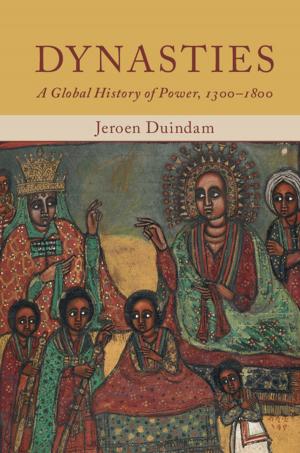Across Forest, Steppe, and Mountain
Environment, Identity, and Empire in Qing China's Borderlands
Nonfiction, History, Asian, Asia, Science & Nature, Nature| Author: | David A. Bello | ISBN: | 9781316443941 |
| Publisher: | Cambridge University Press | Publication: | February 4, 2016 |
| Imprint: | Cambridge University Press | Language: | English |
| Author: | David A. Bello |
| ISBN: | 9781316443941 |
| Publisher: | Cambridge University Press |
| Publication: | February 4, 2016 |
| Imprint: | Cambridge University Press |
| Language: | English |
In this book, David Bello offers a new and radical interpretation of how China's last dynasty, the Qing (1644–1911), relied on the interrelationship between ecology and ethnicity to incorporate the country's far-flung borderlands into the dynasty's expanding empire. The dynasty tried to manage the sustainable survival and compatibility of discrete borderland ethnic regimes in Manchuria, Inner Mongolia, and Yunnan within a corporatist 'Han Chinese' imperial political order. This unprecedented imperial unification resulted in the great human and ecological diversity that exists today. Using natural science literature in conjunction with under-utilized and new sources in the Manchu language, Bello demonstrates how Qing expansion and consolidation of empire was dependent on a precise and intense manipulation of regional environmental relationships.
In this book, David Bello offers a new and radical interpretation of how China's last dynasty, the Qing (1644–1911), relied on the interrelationship between ecology and ethnicity to incorporate the country's far-flung borderlands into the dynasty's expanding empire. The dynasty tried to manage the sustainable survival and compatibility of discrete borderland ethnic regimes in Manchuria, Inner Mongolia, and Yunnan within a corporatist 'Han Chinese' imperial political order. This unprecedented imperial unification resulted in the great human and ecological diversity that exists today. Using natural science literature in conjunction with under-utilized and new sources in the Manchu language, Bello demonstrates how Qing expansion and consolidation of empire was dependent on a precise and intense manipulation of regional environmental relationships.















